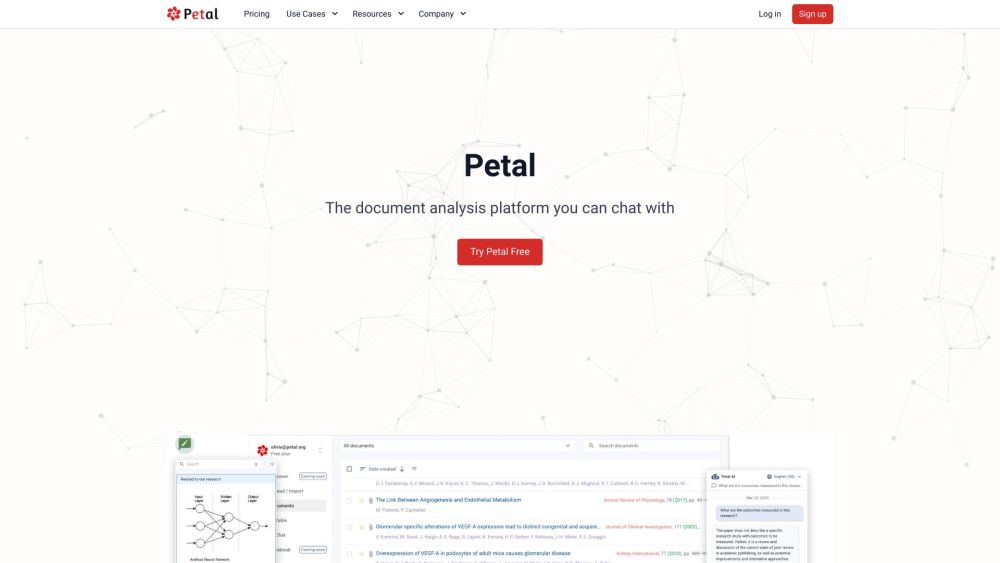In the age of artificial intelligence, prompt engineering has emerged as a crucial skill for maximizing the effectiveness of large language models (LLMs). This involves crafting well-structured inputs to generate relevant and useful outputs from AI models like ChatGPT. While many LLMs are user-friendly and respond well to natural prompts, advanced prompt engineering techniques allow for greater control. This level of expertise is beneficial not only for individual users but also essential for developers building sophisticated AI applications.
The Game-Changer: Prompt Poet
Prompt Poet, a revolutionary tool by Character.ai—recently acquired by Google—offers insights into the future of prompt context management in Google's AI initiatives, such as Gemini. Its simplicity and focus differentiate it from other frameworks like Langchain.
Key Advantages of Prompt Poet:
- Low Code Approach: Streamlines prompt design for both technical and non-technical users, unlike more complex frameworks.
- Template Flexibility: Utilizes YAML and Jinja2 to support intricate prompt structures.
- Context Management: Effectively integrates external data, allowing for a more dynamic and rich prompt creation experience.
- Efficiency: Saves time spent on string manipulations, enabling users to concentrate on crafting optimal prompt content.
This article highlights the significance of context in prompt engineering, focusing on the components of instructions and data. We will demonstrate how Prompt Poet can simplify the creation of dynamic, data-enhanced prompts, improving your LLM applications.
The Importance of Context: Instructions and Data
Customizing an LLM often requires detailed instructions about its behavior, such as specifying a personality type, context, or even a notable figure. For instance, when seeking advice on a moral dilemma, directing the model to emulate a specific person can dramatically influence its response. Here’s an example prompt:
“Simulate a panel discussion with philosophers Aristotle, Karl Marx, and Peter Singer, where each provides advice, comments on others’ ideas, and concludes, all while being very hungry. The question: The pizza place gave us an extra pie; should I tell them or keep it?”
The specifics of your prompt are crucial. Effective prompt engineering also demands curated data contexts, such as personal user information or real-time facts, which the AI normally wouldn’t have access to. This enables the AI to deliver outputs that are significantly more relevant than those from a generic model.
Efficient Data Management with Prompt Templating
While users can manually provide data to ChatGPT, this method can be tedious and prone to errors—particularly for developers. Prompt templating addresses this inefficiency. Prompt Poet employs YAML and Jinja2 to create versatile prompts, drastically enhancing LLM interactions.
Example: Daily Planner
Let’s illustrate Prompt Poet's capabilities through a daily planning assistant that reminds users of events and provides contextual insights based on real-time data:
“Good morning! You have virtual meetings in the morning and an afternoon hike planned. Don’t forget water and sunscreen since it’s sunny outside.
Here’s your schedule and current conditions:
- 09:00 AM: Virtual meeting with the marketing team
- 11:00 AM: One-on-one with the project manager
- 07:00 PM: Afternoon hike at Discovery Park with friends
It’s currently 65°F and sunny. Be aware of a bridge closure on I-90, which may cause delays.”
To generate this output, we need to provide two critical pieces of context: tailored instructions about the task and the necessary data for factual background.
Prompt Poet enables efficient handling of context through templates. The following Python snippet illustrates creating a rawtemplate and templatedata for a Prompt Poet Prompt object:
python
raw_template = """
- name: system instructions
role: system
content: |
You are a helpful daily planning assistant. Use the following information about the user's schedule and conditions in their area to provide a detailed summary of the day. Remind them of upcoming events and highlight any warnings or unusual conditions like weather, traffic, or air quality. Ask if they have follow-up questions.
- name: realtime data
role: system
content: |
Weather in {{ usercity }}, {{ usercountry }}:
- Temperature: {{ user_temperature }}°C
- Description: {{ user_description }}
Traffic in {{ user_city }}:
- Status: {{ traffic_status }}
Air Quality in {{ user_city }}:
- AQI: {{ aqi }}
- Main Pollutant: {{ main_pollutant }}
Upcoming Events:
{% for event in events %}
- {{ event.start }}: {{ event.summary }}
{% endfor %}
"""
template_data = {
"usercity": usercity,
"usercountry": usercountry,
"usertemperature": userweather_info["temperature"],
"userdescription": userweather_info["description"],
"trafficstatus": trafficinfo,
"aqi": aqi_info["aqi"],
"mainpollutant": aqiinfo["main_pollutant"],
"events": events_info
}
prompt = Prompt(
rawtemplate=rawtemplate_yaml,
templatedata=templatedata
)
model_response = openai.ChatCompletion.create(
model="gpt-4",
messages=prompt.messages
)
Conclusion
Understanding the fundamentals of prompt engineering—especially the significance of instructions and data—is vital for unlocking the full potential of LLMs. Prompt Poet provides an innovative approach to creating dynamic, data-enriched prompts. Its low-code, flexible template system makes prompt design accessible and efficient, ensuring that AI responses are not only accurate but highly relevant.
Utilizing tools like Prompt Poet can elevate your prompt engineering capabilities and foster the development of cutting-edge AI applications that cater to a wide range of user needs. As AI technology continues to evolve, mastering the latest prompt engineering techniques will be essential for staying ahead in this dynamic field.




